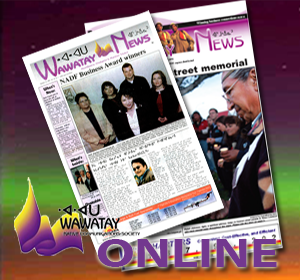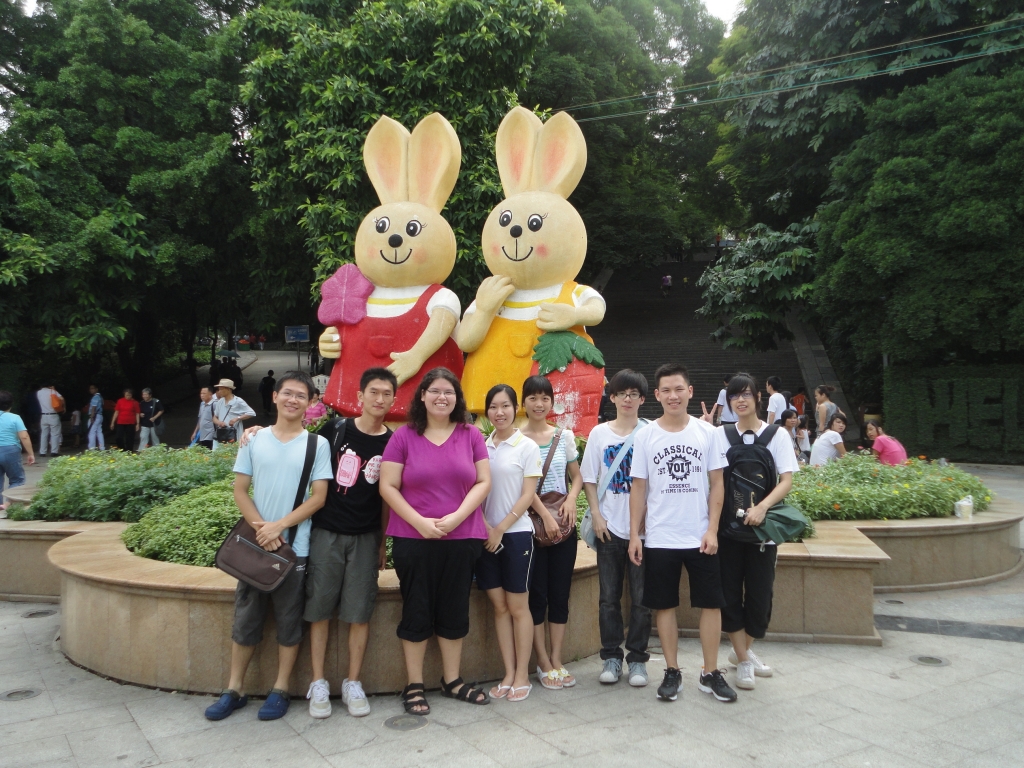Naomi Neckoway-Yang’s first introduction to China was an adventurous taxi ride through a creek to the university she would work at for about two years.
“We had to put our legs up in case the water came in,” Neckoway-Yang says, noting the driver took a detour through the creek due to a bridge closure. “And the driver who was driving us to the university kind of hit a guy on a moped, and they started yelling at each other.”
Neckoway-Yang, whose mother is from Eabametoong, first travelled to China in 2010 with a friend and her friend’s boyfriend to work as an English teacher in a city in a province bordering Vietnam in the south of China.
“It was extremely hot,” Neckoway-Yang says. “I was just overwhelmed by the amount of people there. Crossing the street was kind of crazy because the cars don’t really follow the rules. The mopeds especially don't follow any traffic laws because you don't need a license to drive them.”
Neckoway-Yang says there were about 32 foreign co-workers at the university.
“In China, you only have to work 20 hours or 16 hours a week and your apartment is paid for and your utilities and your bus,” Neckoway-Yang says. “It’s kind of a good deal because you kind of get to explore China. You get a lot of holidays. If I wanted to go out for dinner, it would be about ($4) at the most.”
Neckoway-Yang says the pay and benefits are even better for people with teaching degrees, noting she has a bachelor of arts degree with a history major.
Most of Neckoway-Yang’s students were eager to learn English.
“Some of them were eager to learn about western culture,” Neckoway-Yang says. “Some of them would take you out for dinner and lunches (to learn more English).”
Although Neckoway-Yang took a couple of lessons in Chinese through the university, she learned most of her Chinese by interacting with people.
“When you say “Ting bu dong,” which literally translates to listen, don't understand, that's when they will write out the Chinese characters for you thinking that maybe you don't understand them but can read,” Neckoway-Yang says.
“Which is when you would tell them “Kan bu dong,” (which means) you can’t understand what you are seeing as well.”
Neckoway-Yang says city life is completely different in China compared with Thunder Bay, noting that most people drive electric bikes in China and the streets in Thunder Bay are not as busy as in China.
“In China, there are always people outside, there are always people walking around, there are always things happening,” Neckoway-Yang says. “It’s just an energy that comes with having so many people.”
Neckoway-Yang says people usually go for an evening walk after eating dinner in China.
“You also see middle-aged women dancing because they are doing exercise after dinner,” Neckoway-Yang says. “And the men are usually standing around talking or playing Chinese chess or something.”
Neckoway-Yang returned home in the summer of 2012, but she returned to China in February 2013 to another city where she only had one other foreign co-worker.
“So I had to venture out and meet Chinese friends,” Neckoway-Yang says. “It actually ended up being really good because I was able to experience a different kind of China that I couldn’t get with my foreign friends.”
Neckoway-Yang eventually met her husband Wenlong Yang online through a popular Chinese Internet app: Weixin, which is known as WeChat in Canada. The app includes a device that pairs people up who shake their phone at the same time.
“We just ended up being matched in the shake, and so we started talking to each other,” Neckoway-Yang says. “You can get (the app) here on your phone as well, but I don’t think it is as popular as in China. In China it is like ubiquitous because everywhere you go everyone has WeChat. If you want to make friends with someone, you don’t say what is your phone number. You say what is your WeChat.”
Neckoway-Yang and Yang were married in a Chinese wedding ceremony in his village in 2014 after first obtaining their marriage licence from a government office.
“People in his village and his relatives all came over,” Neckoway-Yang says. “There is a day before the wedding where people socialize and you put on a very elaborate spread of food.”
On their wedding day, Neckoway-Yang went to a salon to get her hair done and to put on her dress. Yang then picked her up from the salon, which is part of the wedding tradition.
“Then a truck that has what looks like a cannon fires off these shots, and it’s really loud,” Neckoway-Yang says. “And there are a lot of fireworks and a lot of candy. Then there was a procession to take me back to his house. And again there was a big meal.”
Neckoway-Yang and Yang now have a baby girl, who was born in November 2014.
“I came back to Canada to have her, but we took her back when she was six months old,” Neckoway-Yang says, noting that Yang stayed in China but came over to visit when he obtained his visitor’s visa. “He liked Thunder Bay; he likes small cities. The only thing he kind of missed was the Chinese food.”
Neckoway-Yang, Yang and the baby girl are now back in Canada with plans to work on obtaining Yang’s permanent residence in Canada.
“In our minds China is always the backup plan if things don’t work in Canada,” Neckoway-Yang says. “There are always jobs in China, for me and for him. He was doing product design.”


















I am the product, evolution of many thousands of years as are you. I grew up on the land in the remote far north of Ontario following in the footsteps of my...
One of the most beautiful serene places I’ve ever visited was on the banks of the Opinagau River in northern Ontario, just near the corner of land where...